Why Is Digital Marketing So Important to Businesses?
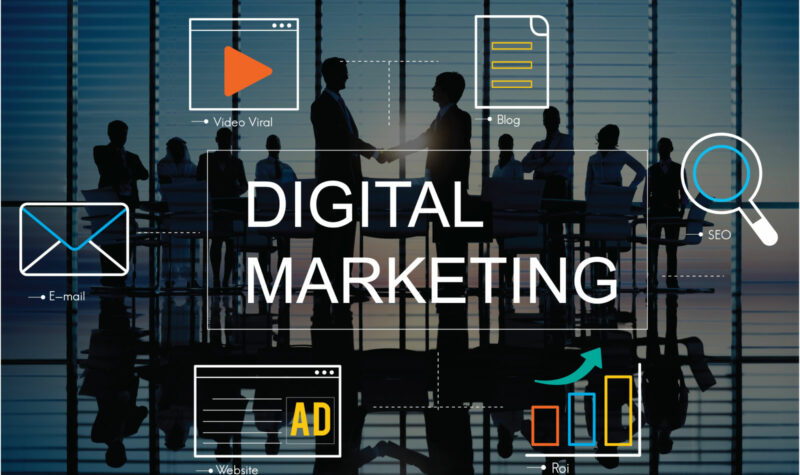
In this article
Come on, ‘fess up. How many times have you gone beyond the first or second page of a Google search?
If the answer is never (or rarely), then that’s digital marketing at work. Digital marketers are experts in making their products or services land on the first page of your search results. But that’s not all they do. Digital marketing now encompasses a wide range of specializations, from content marketing to search engine optimization (SEO).
Want to learn more about digital marketing and why it’s so important? Then keep reading.
What Is Digital Marketing?
Digital marketing is the use of digital channels or technologies to sell or promote a product or service. Content marketing, email marketing, pay-per-click (PPC) advertising, and SEO all fall under the umbrella of digital marketing. Put more simply: if you’re being nudged to buy something when you’re online, then that’s digital marketing at work.

Why Is Digital Marketing Important?
Digital marketing helps brands reach their target audience and promote their product or service. While that’s the goal of a traditional marketing campaign too, digital marketing allows brands to target a more specific or niche audience. Connecting with customers digitally helps build a wider audience that trusts your brand. It’s particularly useful for small businesses, which can easily leverage digital marketing tactics without the help of a marketing department or agency.
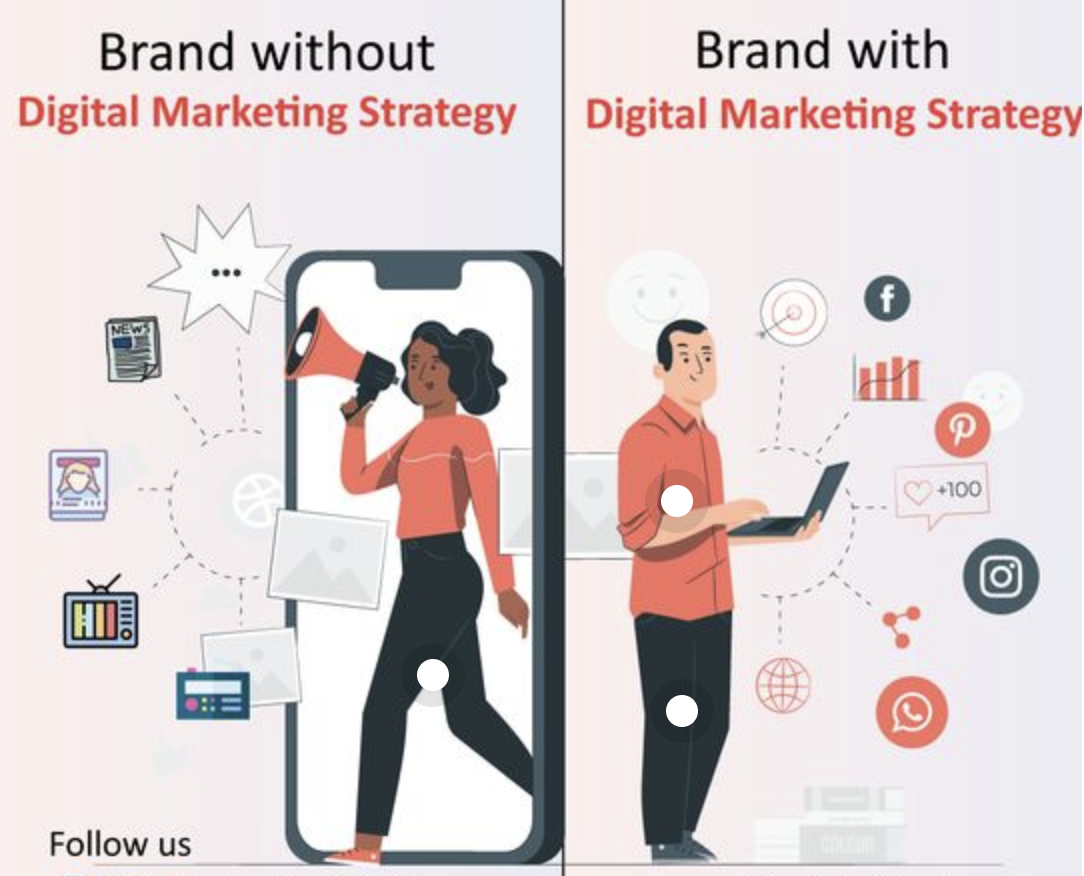
How Do Businesses Use Digital Marketing?
To understand how businesses use digital marketing, let’s use the example of Ryan—a fictitious mid-level salesman at a paper company. As a side hustle, he wants to open up a small business. He creates an app named “Woof!” which allows a person or company to simultaneously send an identical message across different mediums—text, email, Facebook, and so on.
Since Ryan has a small marketing budget, he will rely on systems and processes that have maximum reach with minimal investment. He will channel his resources towards awareness building. Value-filled content will be sufficient to propel his business. He might not have an in-house marketing department, so he will leverage social media through digital marketing agencies or freelancers who specialize in these areas. He might take on the social media marketing aspect himself.
As his small business expands, he might also outsource to a digital marketing company that will handle content marketing and all the other pillars. Till then, he upskills with these free online marketing classes and learns how to become a digital marketing manager on his own.
To market his app, he can do the following:
- Content marketing. Ryan can create written content—such as blogs and guides—about his product. He could also launch a YouTube channel featuring product demos. These kinds of content allow people to better understand the value of his product.
- Search Engine Optimization (SEO). Ryan has all this content now, but it’s lost in the abyss of online searches. He looks at what his target customers are looking up online when searching for communication tools like his. So he uses these search terms as keywords to optimize his website, in the hopes of his content ranking higher.
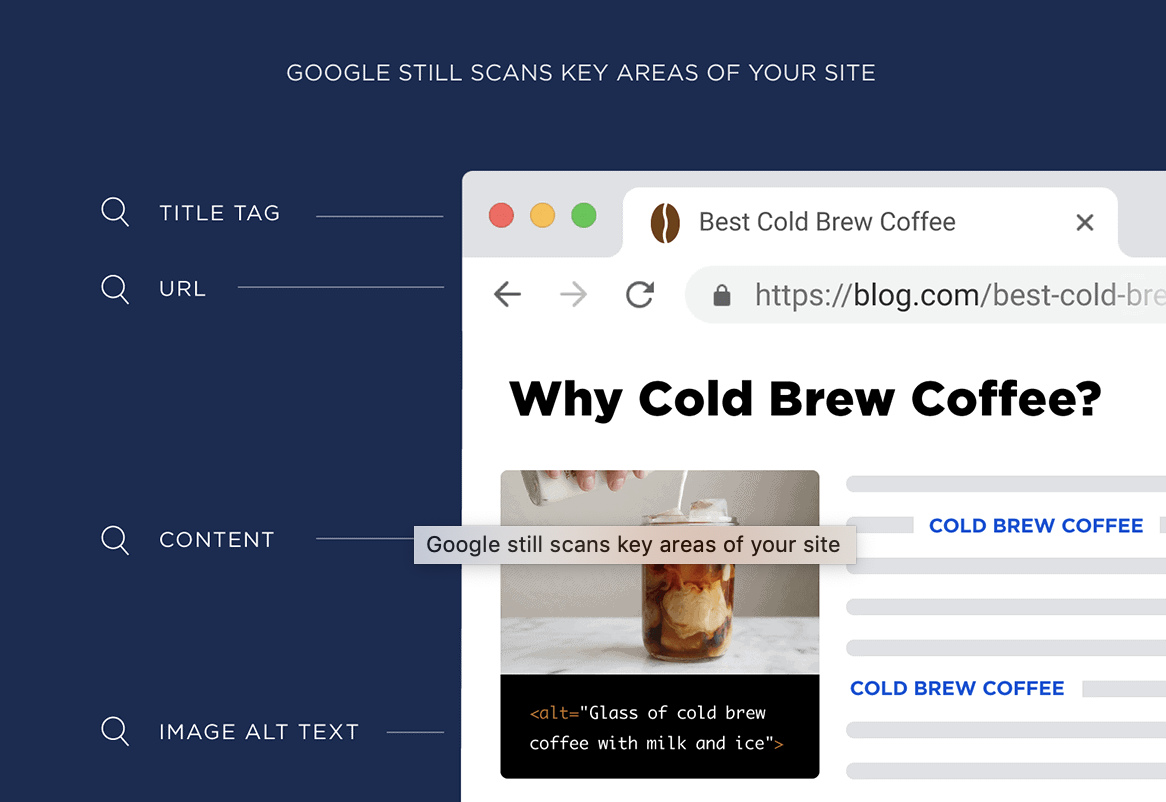
- Email marketing. Ryan then identifies a sizable list of prospective customers interested in buying his product. He creates an email list so that he can send information and resources related to his product.
- Advertisements. Ryan has been relying on creating and repurposing content to build his pool of customers. He now wants to dip his toes in advertising, so he pays for ads to drive traffic to his website. This will require a budget to buy ad space for text, video, and image ads on websites or social media.
- Social media marketing. Ryan has researched his audience and identified that they hang out on only one social channel, Instagram. So he creates an Instagram business profile to talk about his product without coming across as too “sales-y,” which helps him connect with his audience more intimately.
- Influencer marketing. Ryan may use his influencer friends like Kelly, Pam, and Andy to promote his brand. Pam is a business communications consultant and is assisting her audience with using innovative communication tools. She recommends Ryan’s product to her followers, who flock to his website to buy the product using Pam’s referral code. Pam gets a commission.
Importance of Digital Marketing
The undeniable reach of digital mediums means that a business can access a large audience for its products and services. Compare the reach of an ad in a local newspaper versus a post on social media. That ad will only be limited to the newspaper’s subscribers, and for each day you run it, that’s money out of your marketing budget. The post can reach anyone on the platform, and you don’t pay for each day it’s on your profile.
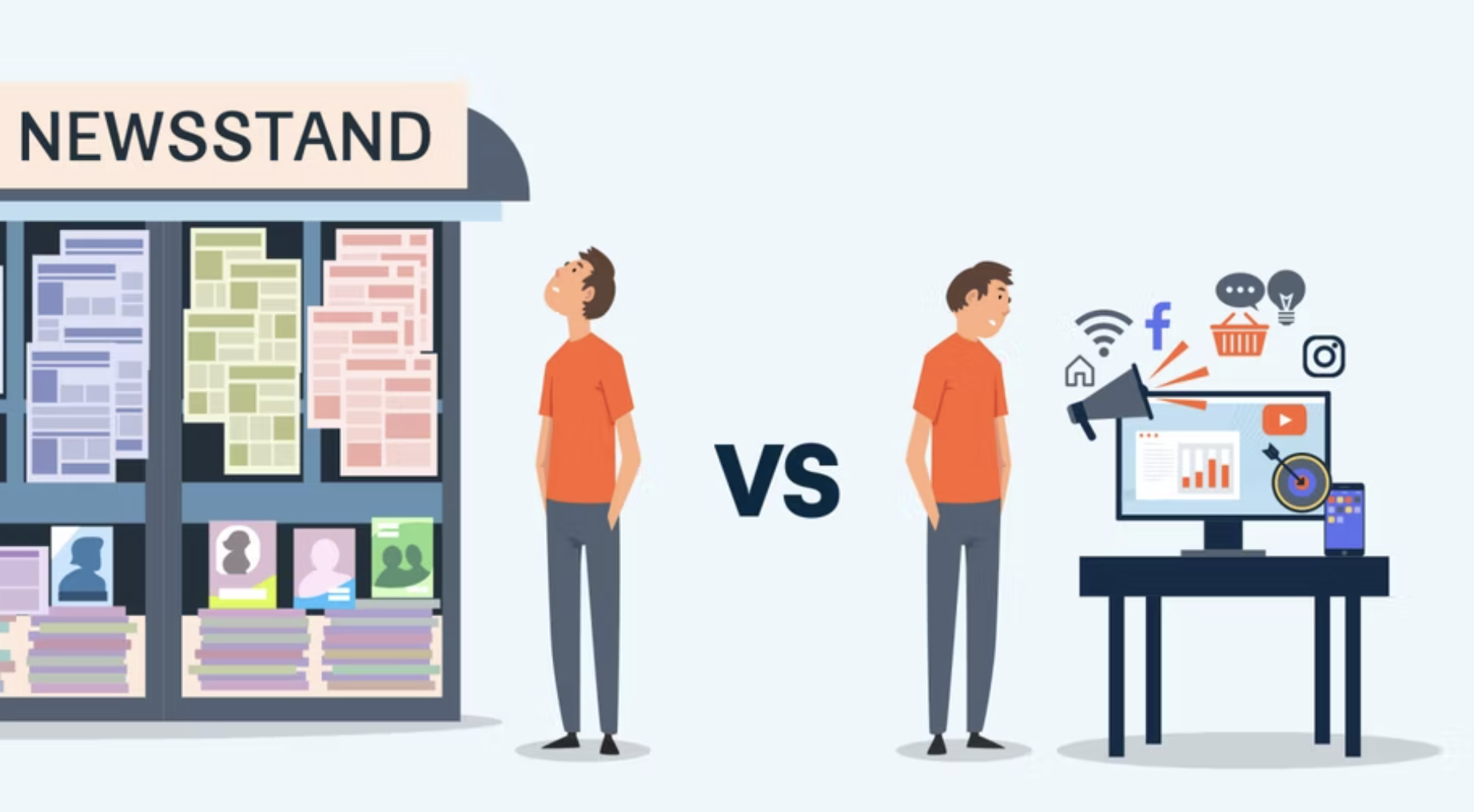
Let’s use the example of fictitious Ryan to dive deeper into the importance of digital marketing:
Digitalization (Users/Customers Are Online)
With digital marketing, Ryan can access customers regardless of their location. He doesn’t need their phone numbers, addresses, or email IDs (until later in the funnel). All he needs to do is create his presence in spaces that his customers are in, such as on a particular social media platform or even search engines.
Targeted Audience Reach
Digital marketing will allow Ryan to target only those likely to buy his communication tools, i.e., his ideal customers. By posting high-quality content and studying who is visiting his website or engaging with his posts, he will get an insight into his target audience and tailor his ads towards them. Does he need to show his ads and posts to older people who prefer using the phone as the primary method of communication only? No. So he doesn’t need to include the older demographic in his marketing strategy.
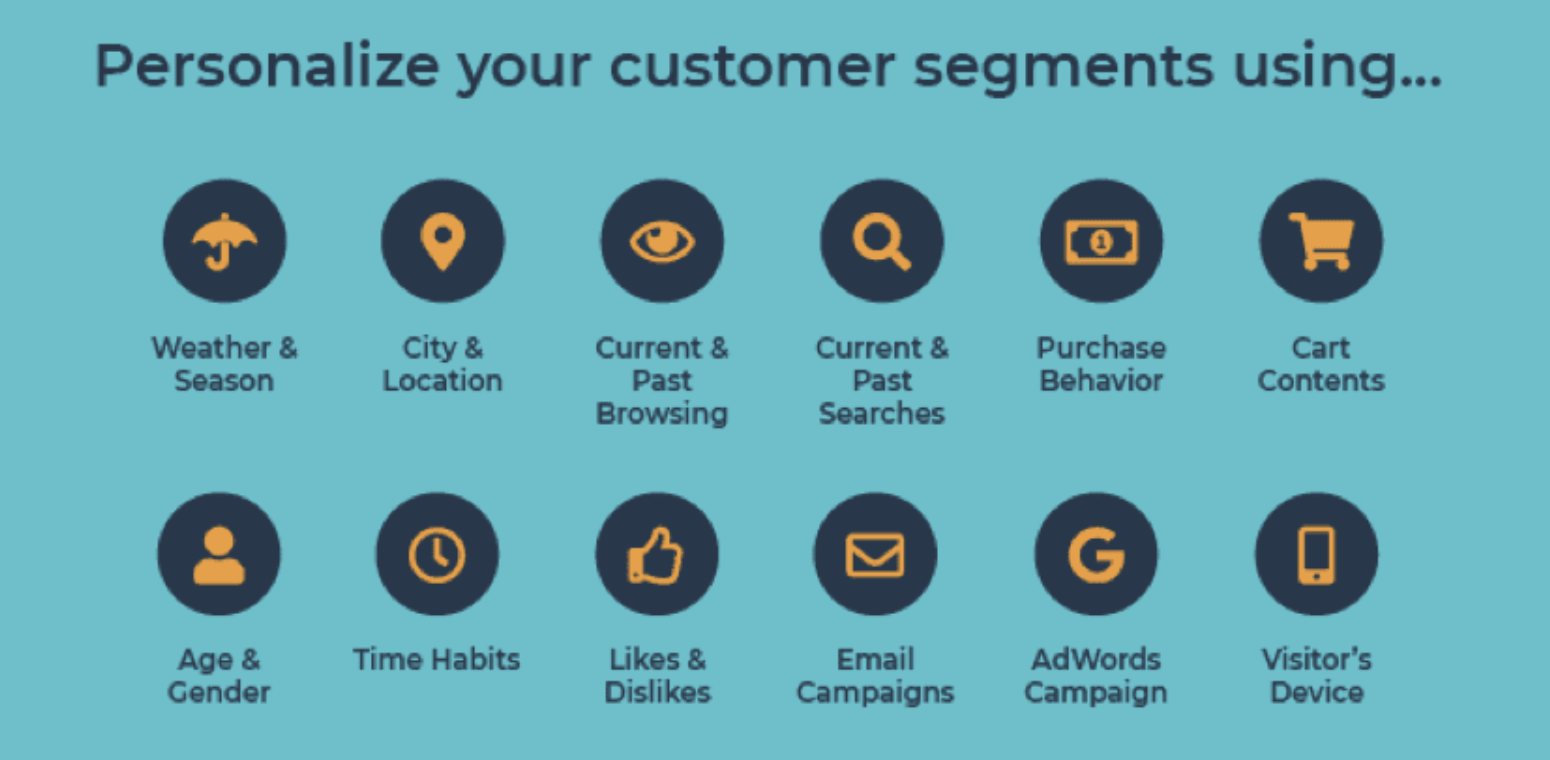
Quick Tracking, Monitoring, and Optimizing (Performance of Campaigns, etc.)
With the right digital marketing tools, Ryan can track many metrics that give him a fair idea of how well his digital marketing campaign is doing. He can track in real-time, so he has the option to optimize the campaigns mid-way. He can measure the ROI for each digital marketing campaign.
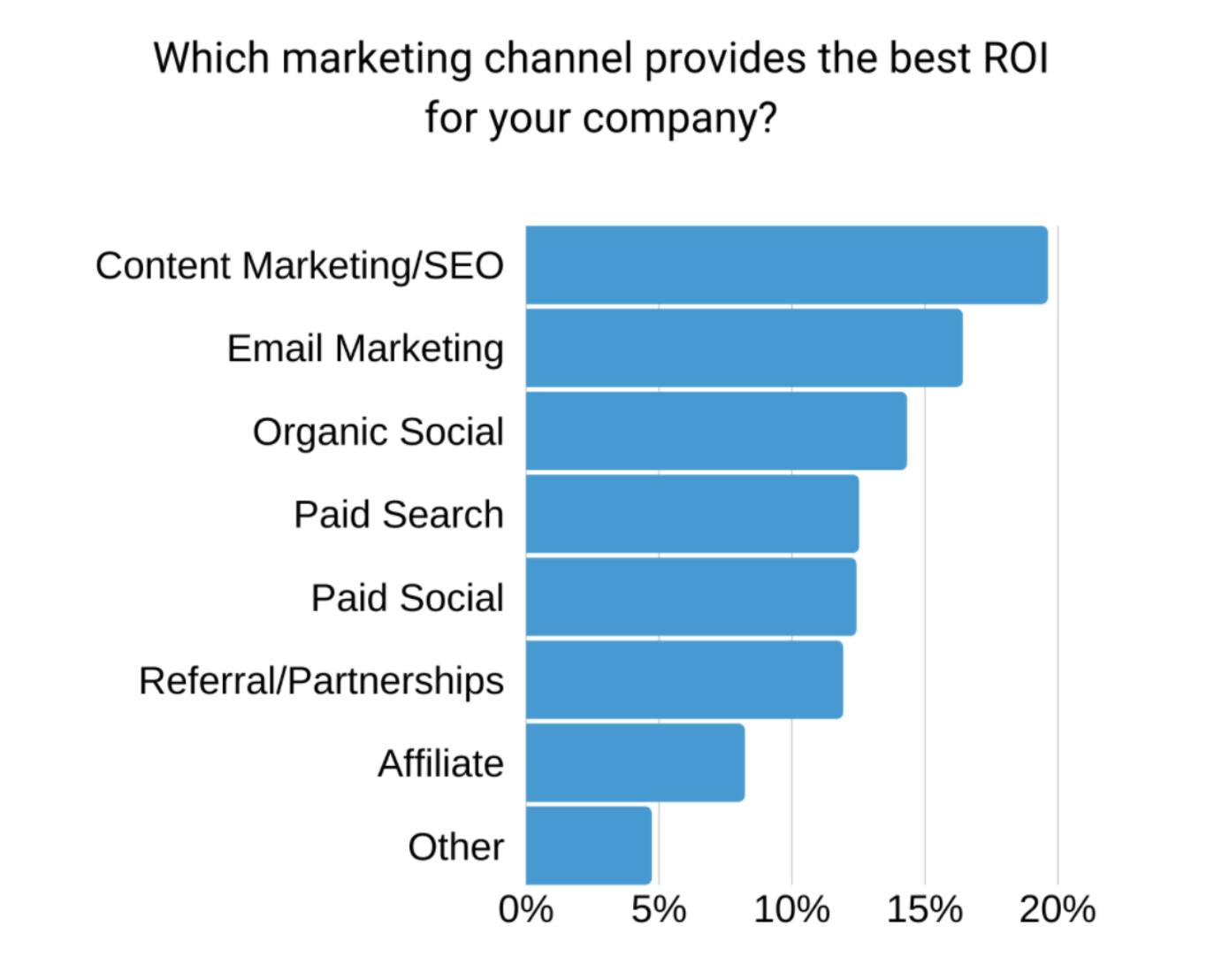
He doesn’t have this option with offline advertising methods. If he puts an ad in the newspaper for a month, he won’t know how to measure the impact of the ad on his sales.
Enables Brands To Provide a Better Interactive Experience via Digital Marketing Channels
Digital marketing allows Ryan to connect with his customers in diverse ways. For example, he can do a live stream on his business’ Instagram page, where he talks to his customers about his product and vision. These digital experiences are subtle forms of advertising to connect with the audience.
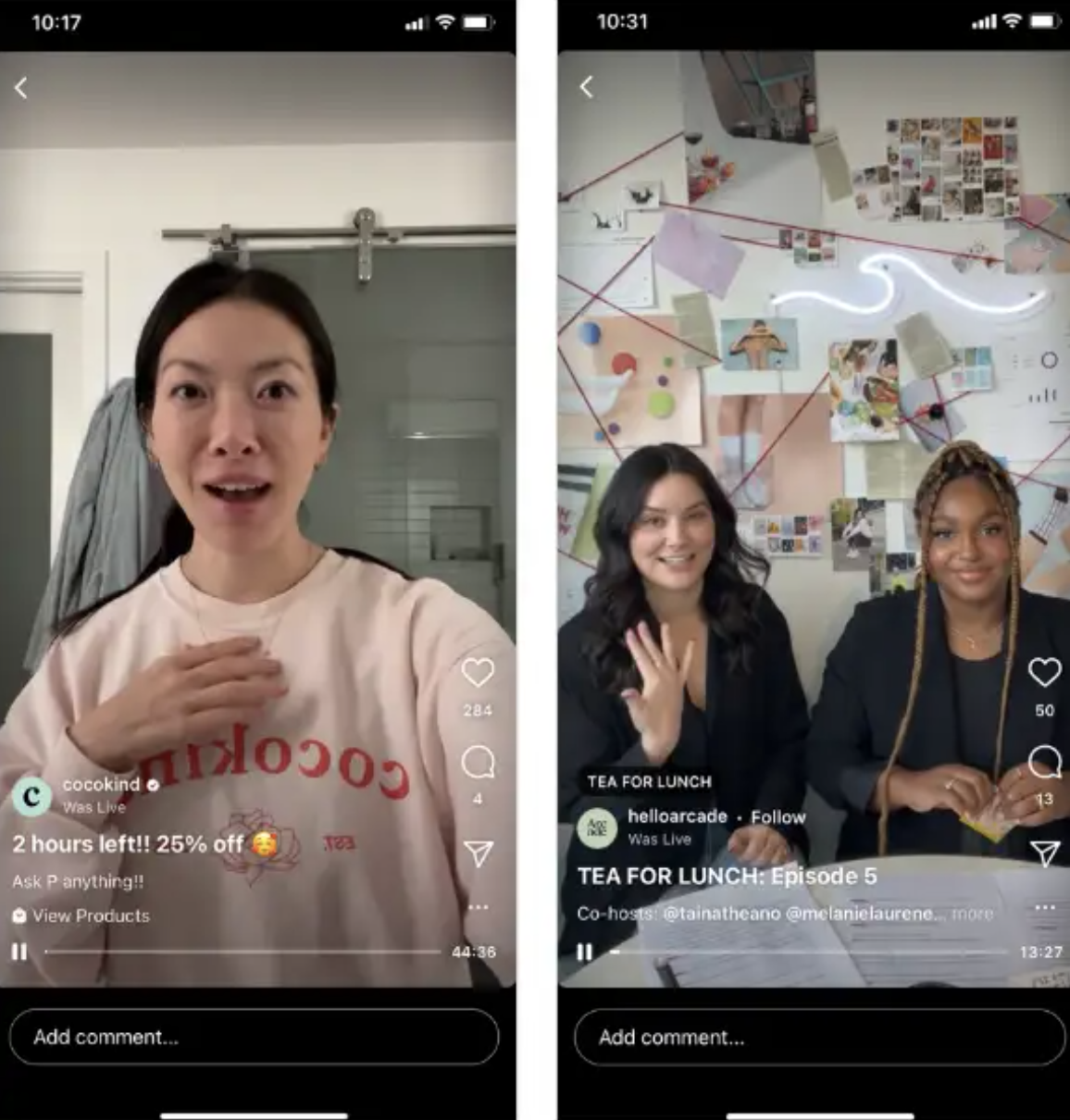
Cost-Effective Over Outbound Marketing Methods

Many traditional marketing methods—such as cold-calling and billboard ads—are not trackable, and are often more expensive than digital marketing methods. For example, content marketing costs 62% less than traditional marketing methods. Cold-calling requires someone on the job always. With billboards/pamphlets, you can’t track how many people look at it and decide to buy his tool. So Ryan uses digital marketing tools because they are more cost-effective.
Dynamic Adaptability (Easier To Adapt and Change the Strategy)
Ryan can keep changing his strategy in real-time based on the response he’s getting for his campaigns. When Instagram isn’t getting him leads, he is not tied to it. He can switch to what works. He is getting the most bang for the buck because of the dynamic adaptability of digital marketing.
Customer Engagement and Retention
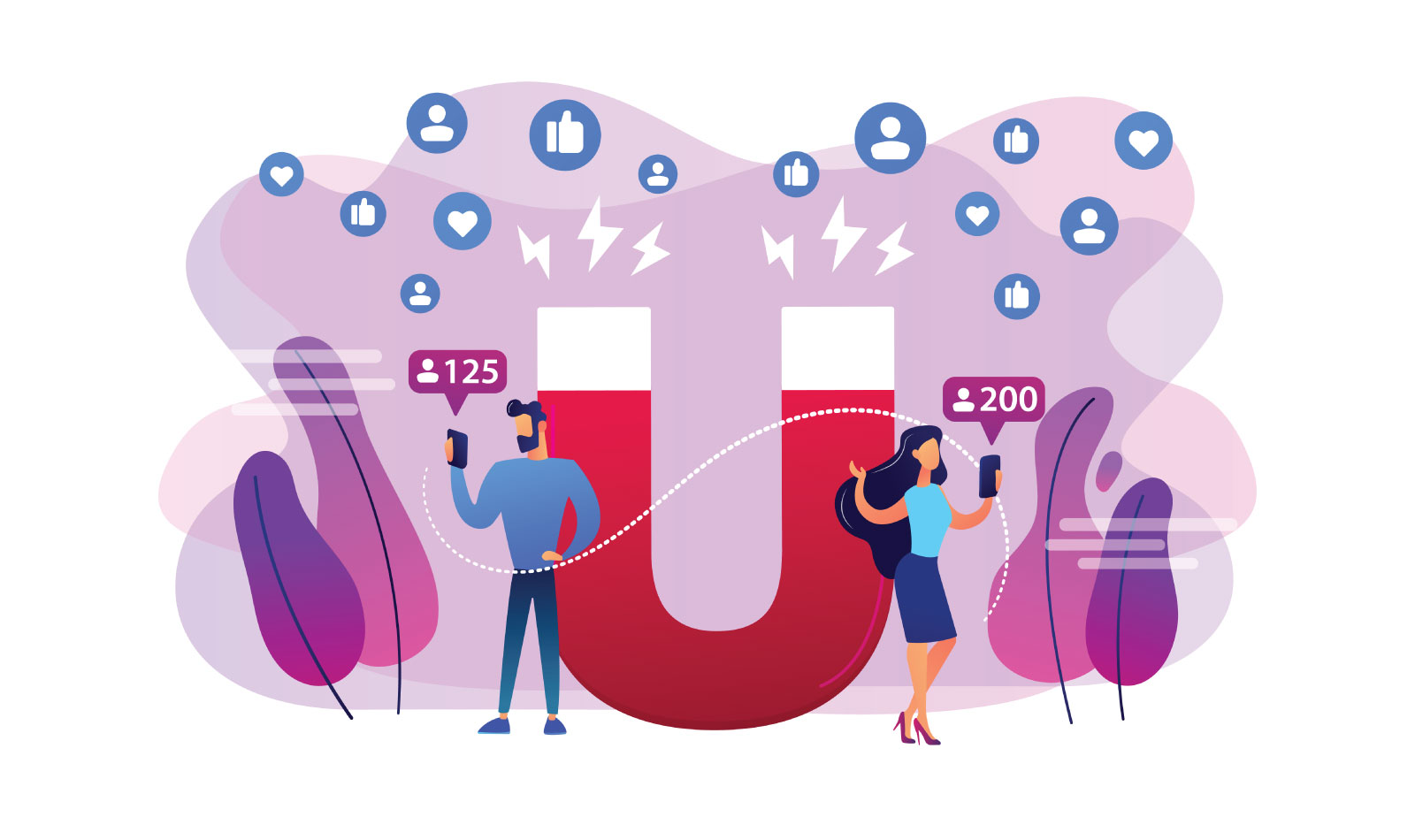
Personalization is critical to customer engagement and retention. Ryan is consistently supplying his customers with online content. He’s giving them opportunities to engage with the brand on social media. He also has a daily email newsletter he has started. His customers are frequently reminded about the brand, and this brand recall helps retain them.
Remarkable ROI
Different digital marketing pillars give varying ROI levels. These remarkable ROI figures can be achieved with strategic execution.
If you contextualize these numbers within the flexibility and longevity of digital marketing, you can see how transformative digital marketing can be for your business.
Stay Competitive
Larger companies and big brands have a massive daily budget to meet their marketing goals, but that doesn’t mean Ryan cannot compete with them. With the strategic allocation of his marketing resources—such as robust SEO strategies, consistent social media campaigns, and a strong content marketing strategy—Ryan can grow his audience and visibility within search engines. Google will see who is worth ranking with valuable content that meets search intent, not who has the bigger budget.
How Much Will Digital Marketing Cost Your Business?
Digital marketing can cost anywhere between zero and thousands of dollars a month. It depends on the business, preferred marketing method, one’s marketing capabilities, marketing message, digital marketing tactics for connecting with the consumer, and the goals you want to achieve with digital marketing.
Small businesses will spend less, but even within small businesses, the niche, location, competition, and goals can vastly make the budgets differ. This graph breaks down the percentage of budget businesses allocated to different digital marketing forms across the UK, Germany, France, and North America:
Let’s take a look at how much some different marketing packages cost:
Basic Digital Marketing Package: $2000-$6000
Ryan is likely to opt for basic digital marketing services during the first few years of his business because he needs to realize as many benefits as possible without a big budget. This could include hiring a freelancer to handle his Instagram business account, a content writer to write frequent posts for the website blog, and a one-time investment in website design since there is an intersection of SEO and UX design.
Intermediate Digital Marketing Package: $10,000-$20,000
Suppose Ryan’s business expands, and he can use intermediate digital marketing services. In that case, he might opt for SEO writers, a social media manager who handles multiple platforms, a website designer on retainer, and a couple of running contracts with affiliate marketers.
Advanced Digital Marketing Package: 9-10% of Total Revenue
Ryan’s biggest competition is Michael, who runs a much larger business. So Michael’s budget is more likely to be revenue-based. Big businesses use 9%-10% of their total revenue on digital marketing budgets for Google ads, content marketing, social media, and SEO.
Digital Marketing FAQs
We have the answers to your most pressing digital marketing questions:
How Do Businesses Monitor the Success of Digital Marketing?
The impact of your digital marketing strategies depends on the KPIs that are relevant to the branch of digital marketing and the tools you are using. You use analytics tools like Google Analytics and Heap to track these KPIs and get actionable insights. Website metrics—such as overall traffic, bounce rates, and average time per visit—are all important to look at. A company with more robust a social media strategy might use different metrics, such as reach and impressions, engagement rate, and click-through rate.
What Is the Heart of Digital Marketing?
The heart of digital marketing is knowing your audience. It doesn’t matter how much you spend on digital marketing strategies, or what your digital marketing efforts include. If your business is unclear about the audience and their pain points, there’s no point. Empathetic connection through consumer-focused content is vital. This is true regardless of formats, platforms, and Google trends.
How and Why Digital Marketing Is Growing?
A business owner wants to go to the customer. Customers spend more time and resources on online channels than ever before. They are consuming ads on websites, apps, or social media. Businesses have to personalize their content per their audience. Since this audience hangs out online, digital marketing is growing. It’s also increasing because the digital marketing industry is thriving. Here’s a digital marketing salaries guide showing the growth of digital marketing from an employment perspective.
Since you’re here…
Interested in a career in digital marketing? Get started today with our free digital marketing learning path.



![How To Get Into Marketing Without a Degree [Career Guide]](png/how-to-get-into-marketing-without-a-degree-380x235.png)